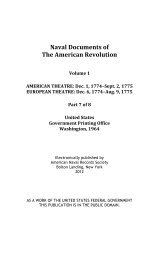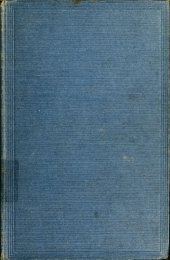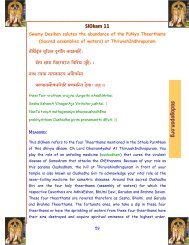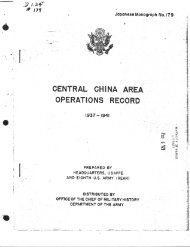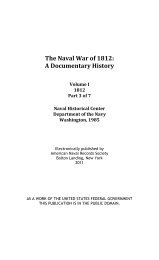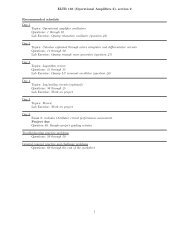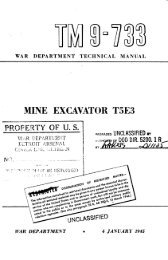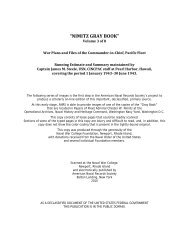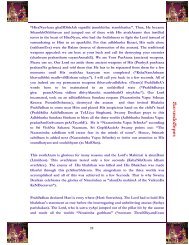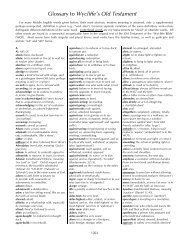You also want an ePaper? Increase the reach of your titles
YUMPU automatically turns print PDFs into web optimized ePapers that Google loves.
CHAPTER 2<br />
2.1 Iskander was the youngest son of the Prince of Epirus, who, with the other Grecian princes,<br />
had, at the commencement of the reign of Amurath the Second, in vain resisted the progress of the<br />
Turkish arms in Europe. The Prince of Epirus had obtained peace by yielding his four sons as hostages<br />
to the Turkish sovereign, who engaged that they should be educated in all the accomplishments of their<br />
rank, and with a due deference to their faith. On the death of the Prince of Epirus, however, Amurath<br />
could not resist the opportunity that then offered itself of adding to his empire the rich principality he had<br />
long coveted. A Turkish force instantly marched into Epirus, and seized upon Croia, the capital city, and<br />
the children of its late ruler were doomed to death. The beauty, talents, and valour of the youngest son,<br />
saved him, however, from the fate of his poisoned brothers. Iskander was educated at Adrianople, in the<br />
Moslemin faith, and as he, at a very early age, exceeded in feats of arms all the Moslemin warriors, he<br />
became a prime favourite of the Sultan, and speedily rose in his service to the highest rank.<br />
2.2 At this period the irresistible progress of the Turkish arms was the subject of alarm throughout<br />
all Christendom.<br />
2.3 Constantinople, then the capital of the Greek Empire, had already been more than once<br />
besieged by the predecessors of Amurath, and had only been preserved by fortunate accidents and<br />
humiliating terms. The despots of Bosnia, Servia, and Bulgaria, and the Grecian princes of Etolia,<br />
Macedon, Epirus, Athens, Phocis, Bœotia, and indeed of all the regions to the straits of Corinth, were<br />
tributaries to Amurath, and the rest of Europe was only preserved from his grasp by the valour of the<br />
Hungarians and the Poles, whom a fortunate alliance had now united under the sovereignty of Uladislaus,<br />
who, incited by the pious eloquence of the cardinal of St. Angelo, the legate of the Pope, and, yielding to<br />
the tears and supplications of the despot of Servia, had, at the time our story opens, quitted Buda, at the<br />
head of an immense army, crossed the Danube, and, joining his valiant viceroy, the famous John<br />
Hunniades, Vaivode of Transylvania, defeated the Turks with great slaughter, relieved all Bulgaria, and<br />
pushed on to the base of Mount Hæmus, known in modern times as the celebrated Balkan. Here the<br />
Turkish general, Karam Bey, awaited the Christians, and hither to his assistance was Iskander<br />
commanded to repair at the head of a body of Janissaries, who had accompanied him to Greece, and the<br />
tributary Epirots.<br />
2.4 Had Iskander been influenced by vulgar ambition, his loftiest desires might have been fully<br />
gratified by the career which Amurath projected for him. The Turkish Sultan destined for the Grecian<br />
Prince the hand of one of his daughters, and the principal command of his armies. He lavished upon him<br />
the highest dignities and boundless wealth; and, whether it arose from a feeling of remorse, or of affection<br />
for a warrior whose unexampled valour and unrivalled skill had already added some of the finest<br />
provinces of Asia to his rule, it is certain that Iskander might have exercised over Amurath a far greater<br />
degree of influence than was enjoyed by any other of his courtiers. But the heart of Iskander responded<br />
with no sympathy to these flattering favours. His Turkish education could never eradicate from his<br />
memory the consciousness that he was a Greek; and although he was brought up in the Moslemin faith,<br />
he had at an early period of his career, secretly recurred to the creed of his Christian fathers. He beheld<br />
in Amurath the murderer of his dearest kinsmen, and the oppressor of his country; and although a certain<br />
calmness of temper, and coolness of judgment, which very early developed themselves in his character,<br />
prevented him from ever giving any indication of his secret feelings, Iskander had long meditated on the<br />
exalted duty of freeing his country.<br />
2.5 Dispatched to Greece, to arrange the tributes and the treaties of the Grecian princes, Iskander<br />
became acquainted with the young Nicæus; and their acquaintance soon matured into friendship.<br />
Nicæus was inexperienced; but nature had not intended him for action. The young Prince of Athens<br />
would loll by the side of a fountain, and dream of the wonders of old days. Surrounded by his eunuchs,<br />
his priests, and his courtiers, he envied Leonidas, and would have emulated Themistocles. He was<br />
passionately devoted to the ancient literature of his country, and had the good taste, rare at that time, to<br />
prefer Demosthenes and Lysias to Chrysostom and Gregory, and the choruses of the Grecian theatre to<br />
the hymns of the Greek church. The sustained energy and noble simplicity of the character of Iskander,<br />
seemed to recall to the young prince the classic heroes over whom he was so often musing, while the<br />
enthusiasm and fancy of Nicæus, and all that apparent weakness of will, and those quick vicissitudes of<br />
emotion, to which men of a fine susceptibility are subject, equally engaged the sympathy of the more<br />
vigorous and constant and experienced mind of his companion.<br />
3



